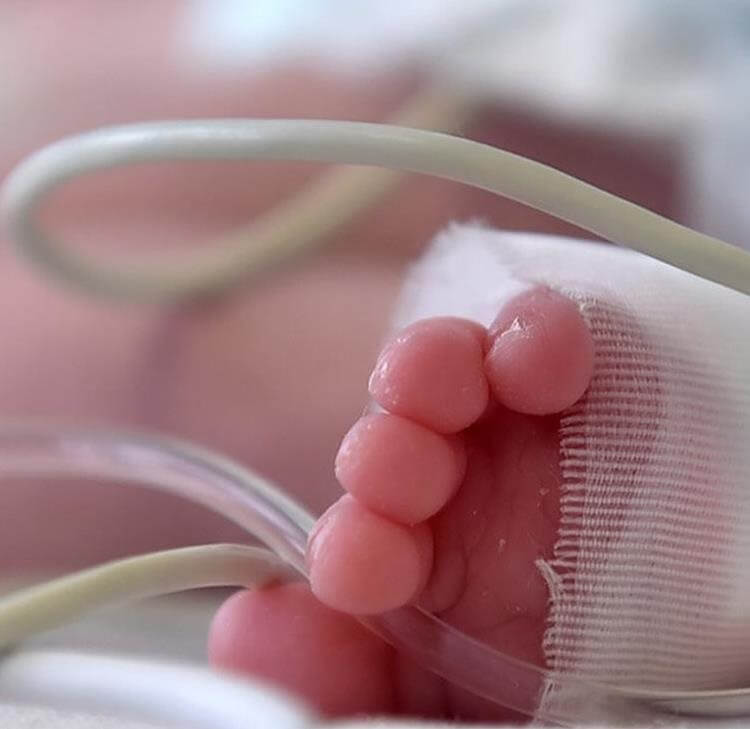Systemic failure or medical negligence?
Lord Burnett handed down Judgement at the RCJ on 10 June 2020 of the following case which is the latest in a line of authorities to explore the engagement of Article 2 at Inquests concerning medical care/treatment, reaffirming the point that such cases will not ordinarily trigger the need for an Article 2 inquest.
Lord Burnett handed down Judgement at the RCJ on 10 June 2020 of the following case which is the latest in a line of authorities to explore the engagement of Article 2 at Inquests concerning medical care/treatment. The case reaffirms the point that such cases will not ordinarily trigger the need for an Article 2 inquest.
Maguire, R (on the application of) v HM Senior Coroner for Blackpool & Fylde & Ors [2020] EWCA Civ 738 (10 June 2020).
Facts
J was a vulnerable adult with complex needs and disabilities. She had been living in a residential care home since 1993 and was deprived of her liberty by way of a standard authorisation.
In late February 2017, J became increasingly ill and an ambulance was called. Paramedics advised conveyance to hospital but J refused to attend hospital. An OOHs GP was called who advised that if J would not co-operate she should stay in the care home and be monitored overnight. The following morning, J collapsed and was taken to hospital. She was found severely dehydrated, with kidney failure and metabolic acidosis. J sadly died on 22 February 2017.
Coroner’s Inquest
At inquest, J’s family were critical of the care provided and stated they felt there should have been a protocol in place for conveying J to hospital even if she refused. At the end of the inquest evidence, HM Coroner determined that Article 2 was not engaged.
Judicial Review Proceedings
Divisional Court Judgment
HM Coroner’s decision was challenged but the Divisional court rejected the challenge by upholding HM Coroner’s decision that he had correctly used the guidance in R. (Parkinson) v HM Senior Coroner for Kent [2018] EWHC 1501 (Admin) [2018] 4 W.L.R. 106 and that Article 2 was not engaged.
Court of Appeal
The Divisional Court judgment was appealed on the basis that:
- The operational duty under Article 2 applied
- Even if the Parkinson case was followed, HM Coroner should have regarded the absence of a protocol for conveyance to hospital as a systemic failure engaging Article 2
- The lower court did not take into account the wider context of premature deaths in those with learning disabilities
The Court of Appeal dismissed the appeal and found:
- The operational duty was not automatically owed to vulnerable individuals living in care homes; it must be considered on a case by case basis
- For the operational duty to be engaged there must be state responsibility rather than an individual judgement
- An individual judgement at a place that the state knew to be ‘appalling’ and potentially life threatening could trigger the operational duty (Nancheva v Bulgaria (App No 48606/06)) – this could extend to the state not acting on shortcomings identified through regulatory inspections.
- J’s circumstances were not analogous with a psychiatric patient who was in hospital to guard against suicide (i.e. a Rabone-style patient). J was in the care home as she could not look after herself rather than for medical treatment (which if needed was sought in the usual way)
- Her position would not have been different had she been able to continue to live independently or be cared for by her family with a package of care (and subject to a court approved deprivation of liberty)
- There was nothing before the court that suggested widespread difficulty with conveying individuals to hospital when it is in their interests to do so and as such the criticism regarding the absence of a protocol for hospital conveyance was individual to J rather than systemic
- That the Learning Disabilities Review provided by the appellant did not add weight to the suggestion the operational duty was owed
- The case did not fall into the four cumulative Lopes de Sousa Fernandes v Portugal (2018) 66 EHRR 28 exceptions which, if present, may engage the operational duty even in a ‘medical case’. These are:
- That the actions went beyond ‘mere negligence’
- The dysfunction complained of was systemic rather than individual
- The dysfunction must be linked to the harm suffered
- The dysfunction must have resulted from the failure of the state to meet its obligations to provide a regulatory framework
Conclusion
The Court of Appeal judgment maintains the position that the engagement of the operational duty should occur rarely in ‘medical inquests’ and that a high threshold is set in that regard. It also clearly states that this threshold must be high for those residing in care homes who may receive potentially negligent medical treatment.
It also reaffirms that the state must effect a regulatory framework for the protection of patient’s lives and take preventative measures in the face of a real and immediate risk to life. The reference to ‘regulatory inspections’ poses the potential for there to be greater focus on CQC inspections at inquests especially in respect of Article 2 arguments.
Co-authored by Ed Pollard and Ruby O'Hara.
Related expertise
You may be interested in...
Opinion - Maternity services
University Hospital Leicester hold their inaugural Maternity Safety Conference
In Person Event
Navigating your way through high profile sensitive reviews and investigations
Opinion
Junior doctors vote unanimously in favour of strike action
Opinion
Can toilet facilities amount to sex discrimination?
Published Article
Digital Twin Technologies: key legal contractual considerations
Opinion
Consultation launched on minimum ambulance service levels during strike action
Opinion - Maternity services
Changes to redundancy protections for employees post-maternity leave
Legal Update - Shared Insights
Shared Insights: Coroners’ Question Time
Press Release - Careers
Browne Jacobson health lawyer wins major accolade at Made in Manchester Awards
Opinion
BMA issues medical locum rate card for junior doctors
Legal Update
Employee who refused to wear a face mask fairly dismissed
Opinion
New toolkit to support safer recruitment in the care sector
Legal Update
Green Leases for the NHS
Guide
Government response to the consultation on the Higher-Risk Buildings Regulations
Published Article
The first 100 days for Integrated Care Boards
Opinion
Menopause and the workplace
On-Demand
Future of Care - Retirement Living webinar
In Person Event
Independent Healthcare In-House Lawyers Forum
Opinion
Government introduces new “anti-striking laws” to be discussed in Parliament
Press Release - Maternity services
Father Christmas comes to University Hospital Coventry and Warwickshire care of Browne Jacobson’s Birmingham Office Community Action Group
Opinion - Maternity services
The Patient Safety Incident Response Framework (PSIRF) and its impact on maternity services
Legal Update - Shared Insights
Shared Insights: Looking ahead to 2023 – what Health and Care employers need to know
Opinion
Coroner’s refusal to issue a Prevention of Future Deaths Report following death in prison custody inquest was lawful
Article
Mental health, eating disorders and placement of young people
Legal Update
LPS consultation and ‘go live’ planning
Opinion
Consultation launched on plans to amend NHS pension rules to bolster NHS workforce
Legal Update
Getting ready to face Industrial Action
Legal Update - Shared Insights
Shared Insights: Prolonged disorders of consciousness
Published Article
How AI and technology can transform the healthcare sector
On-Demand
The UK's green agenda - the outcomes of COP27 and actions since COP26
On-Demand
Insights from the Chief Coroner by His Honour Judge Thomas Teague, KC
Opinion
BMA advises consultants not to accept less than the BMA minimum rate card for extra-contractual work
The BMA is advising all NHS / HSCNI consultants to ensure extra-contractual work is paid at the BMA minimum recommended rate and to decline offers of extra-contractual work that doesn't value them appropriately.
On-Demand
Leadership and lessons learnt during the Pandemic by Professor Jonathan Van-Tam
Legal Update - Shared Insights
Shared Insights: The Patient Safety Incident Response Framework
Guide - Maternity services
Mediation guide for Clinicians: What do you need to know and how do you need to prepare
Opinion
NHS England – Updated Transaction Guidance
NHS England has published (October 2022) new guidance - Assuring and supporting complex change: Statutory transactions, including mergers and acquisitions.
Opinion
NHS England – Assuring and supporting complex change
NHS England has issued an updated (publication 11 October 2022) suite of Complex Change guidance about how it will assure and support proposals for complex change that are reportable to it. New and (where it is still in force) existing Complex Change guidance are as follows.
Legal Update
The Retained EU Law
Created at the end of the Brexit transition period, Retained EU Law is a category of domestic law that consists of EU-derived legislation retained in our domestic legal framework by the European Union (Withdrawal) Act 2018. This was never intended to be a permanent arrangement as parliament promised to deal with retained EU law through the Retained EU Law (Revocation and Reform) Bill (the “Bill”).
Legal Update
Economic crime and cybercrime
It is clear that the digital landscape, often termed cyberspace, is a man-made environment, in which human behaviour dominates and where technology both influences and aids our role in it — through the internet, telecoms and networked computer systems, which are often interdependent. The extent to which any organisation is potentially vulnerable to cyber-attack depends on how well these elements are aligned.
Legal Update
Redundancy consultation and selection concerning expiry of a fixed term contract – EAT put the spotlight onto a ‘selection pool of one’
In Mogane v Bradford Teaching Hospitals NHS Foundation Trust the Employment Appeal Tribunal (EAT) considered whether it was fair to dismiss a nurse as redundant on the basis that that her fixed-term contract was due to expire before that of her colleague.
























